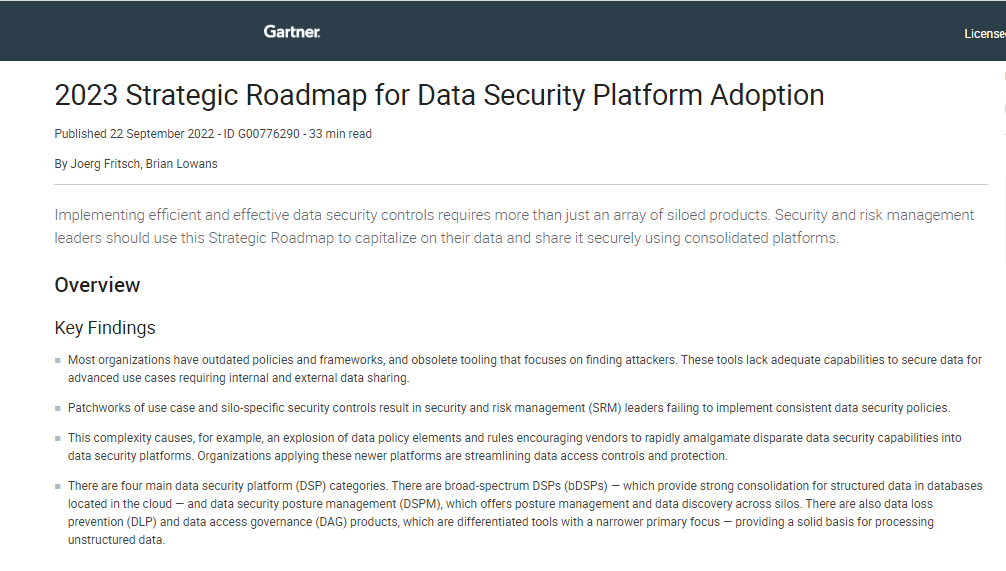Cyber attacks on UK organisations surged 77% in 2022, new research finds
The UK education sector saw a 237% increase in attacks compared to 2021


UK organisations experienced an average of 788 weekly cyber attacks across 2022, marking a 77% increase from 2021.
New figures from Check Point highlight the growing severity of cyber threats in 2022, with attacks surging by 38% compared to the previous year.
The global volume of cyber attacks also reached an all-time high in the fourth quarter of the year with an average of 1,168 weekly attacks per organisation.
This escalation was driven predominately by smaller, more agile threat actors and sophisticated ransomware gangs, Check Point said, many of which targeted healthcare organisations, academic institutions, and the private sector.
“Cyber attacks are increasing worldwide, with 38% more cyber attacks per week on corporate networking in 2022 compared to 2021,” said Omer Dembinsky, data group manager at Check Point. “Several cyber threat trends are all happening at once.”
Growing cyber threats
Across 2022, the education/research sector was the most attacked industry in the UK, the research found. Organisations operating in this industry experienced a weekly average of 2,653 attacks, which is an increase of 237% compared to 2021.
Academic institutions have become a “popular feeding ground for cyber criminals” in the wake of rapid digitisation during the response to the coronavirus pandemic, Dembinsky warned.
Get the ITPro daily newsletter
Sign up today and you will receive a free copy of our Future Focus 2025 report - the leading guidance on AI, cybersecurity and other IT challenges as per 700+ senior executives
Globally, education/research sector was the most targeted industry in 2022, witnessing a 43% increase in threats and a weekly average of 2,314 attacks per organisation.
“Many education institutions have been ill-prepared for the unexpected shift to online learning, creating ample opportunity for hackers to infiltrate networks through any means necessary,” Dembinsky explained.
“Schools and universities also have the unique challenge of dealing with children or young adults, many of which use their own devices, work from shared locations.”
This increase in threats to UK-based organisations reflects a global trend of escalating security threats, according to Check Point.
North America saw a 52% increase in cyber attacks compared to the previous year while European organisations were forced to contend with a 26% surge in threats.
Healthcare in the crosshair
The healthcare sector was another key target for cyber criminals across 2022, Check Point revealed, reflecting a long-running trend that has grown steadily since the onset of the coronavirus pandemic in 2020.
Cyber attacks against US healthcare organisations surged by 86% compared to the year prior with a weekly average of 1,410 attacks confirmed.
This increase means that the healthcare sector was the second most targeted industry in the US last year.
In July, the FBI, Treasury Department and Cybersecurity and Infrastructure Security Agency (CISA) issued an alert over North Korean state-sponsored ransomware groups targeting healthcare organisations.
The FBI said that it has observed and responded to “multiple ransomware incidents” at healthcare providers across the sector as groups bombarded organisations with the Maui ransomware strain.
In August, a software supplier for the NHS was struck by a ransomware attack which caused widespread outages across the health service.
RELATED RESOURCE

2023 Strategic roadmap for data security platform convergence
Capitalise on your data and share it securely using consolidated platforms
This incident caused disruption to emergency prescription services, ambulance dispatching systems and the 111 non-emergency advice line.
“The healthcare sector is so lucrative to hackers as they aim to retrieve health insurance information, medical records numbers and, sometimes, even social security numbers with direct threats from ransomware gangs to patients, demanding payment under threats of having patient records released,” Dembinsky said.
“Ransomware gangs also find the attention gained from attacking a hospital as an attractive plus-point for their notoriety.”
Ransomware on the rise
A key factor in the deteriorating threat landscape across 2022 was the proliferation of sophisticated and highly aggressive ransomware gangs, Check Point revealed.
Widening attack surfaces were a major consideration for organisations globally last year amidst continued hybrid and remote working practices across a range of industries. And Dembinsky said this distributed, hybrid working environment presented a prime opportunity for hackers to capitalise on weak points in organisational security.
“The ransomware ecosystem is continuing to evolve and grow with smaller, more agile criminal groups that form to evade law enforcement,” he said.
“Hackers are widening their aim to target business collaboration tools such as Slack, Teams, OneDrive and Google Drive with phishing exploits. These make for a rich source of sensitive data given that most organisations’ employees continue to work remotely,” Dembinsky added.

Ross Kelly is ITPro's News & Analysis Editor, responsible for leading the brand's news output and in-depth reporting on the latest stories from across the business technology landscape. Ross was previously a Staff Writer, during which time he developed a keen interest in cyber security, business leadership, and emerging technologies.
He graduated from Edinburgh Napier University in 2016 with a BA (Hons) in Journalism, and joined ITPro in 2022 after four years working in technology conference research.
For news pitches, you can contact Ross at ross.kelly@futurenet.com, or on Twitter and LinkedIn.
-
 Bigger salaries, more burnout: Is the CISO role in crisis?
Bigger salaries, more burnout: Is the CISO role in crisis?In-depth CISOs are more stressed than ever before – but why is this and what can be done?
By Kate O'Flaherty Published
-
 Cheap cyber crime kits can be bought on the dark web for less than $25
Cheap cyber crime kits can be bought on the dark web for less than $25News Research from NordVPN shows phishing kits are now widely available on the dark web and via messaging apps like Telegram, and are often selling for less than $25.
By Emma Woollacott Published
-
 ‘Phishing kits are a force multiplier': Cheap cyber crime kits can be bought on the dark web for less than $25 – and experts warn it’s lowering the barrier of entry for amateur hackers
‘Phishing kits are a force multiplier': Cheap cyber crime kits can be bought on the dark web for less than $25 – and experts warn it’s lowering the barrier of entry for amateur hackersNews Research from NordVPN shows phishing kits are now widely available on the dark web and via messaging apps like Telegram, and are often selling for less than $25.
By Emma Woollacott Published
-
 Healthcare systems are rife with exploits — and ransomware gangs have noticed
Healthcare systems are rife with exploits — and ransomware gangs have noticedNews Nearly nine-in-ten healthcare organizations have medical devices that are vulnerable to exploits, and ransomware groups are taking notice.
By Nicole Kobie Published
-
 Alleged LockBit developer extradited to the US
Alleged LockBit developer extradited to the USNews A Russian-Israeli man has been extradited to the US amid accusations of being a key LockBit ransomware developer.
By Emma Woollacott Published
-
 February was the worst month on record for ransomware attacks – and one threat group had a field day
February was the worst month on record for ransomware attacks – and one threat group had a field dayNews February 2025 was the worst month on record for the number of ransomware attacks, according to new research from Bitdefender.
By Emma Woollacott Published
-
 CISA issues warning over Medusa ransomware after 300 victims from critical sectors impacted
CISA issues warning over Medusa ransomware after 300 victims from critical sectors impactedNews The Medusa ransomware as a Service operation compromised twice as many organizations at the start of 2025 compared to 2024
By Solomon Klappholz Published
-
 Warning issued over prolific 'Ghost' ransomware group
Warning issued over prolific 'Ghost' ransomware groupNews The Ghost ransomware group is known to act fast and exploit vulnerabilities in public-facing appliances
By Solomon Klappholz Published
-
 The Zservers takedown is another big win for law enforcement
The Zservers takedown is another big win for law enforcementNews LockBit has been dealt another blow by law enforcement after Dutch police took 127 of its servers offline
By Solomon Klappholz Published
-
 There’s a new ransomware player on the scene: the ‘BlackLock’ group has become one of the most prolific operators in the cyber crime industry – and researchers warn it’s only going to get worse for potential victims
There’s a new ransomware player on the scene: the ‘BlackLock’ group has become one of the most prolific operators in the cyber crime industry – and researchers warn it’s only going to get worse for potential victimsNews Security experts have warned the BlackLock group could become the most active ransomware operator in 2025
By Solomon Klappholz Published